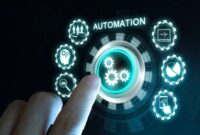Data security in cloud storage takes center stage, beckoning readers into a world of knowledge where safeguarding data is paramount. This passage ensures an absorbing and original reading experience.
Encryption, access control, compliance, and regulations play crucial roles in fortifying data security in cloud storage. Let’s delve deeper into these key aspects.
Overview of Data Security in Cloud Storage

Data security in cloud storage is of paramount importance in today’s digital age. With businesses and individuals relying on cloud services to store and access their data, ensuring the protection and confidentiality of this information is crucial.
Importance of Data Security in Cloud Storage
- Protects sensitive information: Data security measures in cloud storage help safeguard sensitive data such as personal information, financial records, and proprietary business data from unauthorized access.
- Ensures compliance with regulations: Many industries have strict regulations regarding data protection. Implementing robust security measures in cloud storage helps organizations comply with these regulations and avoid potential legal consequences.
- Preserves reputation and trust: Data breaches can severely damage a company’s reputation and erode customer trust. By prioritizing data security in cloud storage, businesses can maintain trust with their customers and stakeholders.
Common Threats to Data Security in Cloud Storage
- Unauthorized access: Hackers may attempt to gain unauthorized access to cloud storage systems to steal sensitive data or disrupt operations.
- Data breaches: Breaches in cloud storage can result in the exposure of confidential information, leading to financial losses and reputational damage for businesses.
- Malware and ransomware: Malicious software can infect cloud storage systems, causing data loss, encryption of files, and extortion demands for decryption keys.
Impact of Data Breaches on Businesses and Individuals
- Financial losses: Data breaches can result in significant financial losses for businesses due to legal fees, regulatory fines, and loss of revenue.
- Reputational damage: Businesses that experience data breaches may suffer reputational damage, leading to a loss of customer trust and loyalty.
- Identity theft: Individuals whose personal information is exposed in data breaches may become victims of identity theft, leading to financial and emotional distress.
Encryption in Cloud Storage
Encryption plays a crucial role in securing data in the cloud by converting information into a code that can only be accessed with the corresponding decryption key. This process ensures that even if unauthorized users gain access to the data, they cannot decipher it without the proper key.
Different Encryption Methods
- Symmetric Encryption: This method uses a single key to encrypt and decrypt data. While it is efficient, the challenge lies in securely sharing the key between the sender and receiver.
- Asymmetric Encryption: Also known as public-key encryption, this method involves a pair of keys – a public key for encryption and a private key for decryption. This approach is widely used for secure communication over the internet.
- Hashing: Hash functions are used to create a unique digital fingerprint of data. While not reversible, hashing is commonly used for data integrity verification.
Benefits of End-to-End Encryption
End-to-end encryption ensures that data is encrypted at the source and remains encrypted until it reaches the intended recipient, providing an extra layer of security. This method prevents intermediate servers or cloud providers from accessing the plaintext data, enhancing privacy and confidentiality for users.
Access Control and Authentication

Access control in cloud storage refers to the processes and mechanisms put in place to regulate who can access data stored in the cloud. It involves managing user permissions and privileges to ensure that only authorized individuals can view, modify, or delete sensitive information.
Role of Authentication Mechanisms
Authentication mechanisms play a crucial role in ensuring data security in cloud storage. By verifying the identity of users attempting to access the system, authentication helps prevent unauthorized access and data breaches. Examples of authentication methods include:
- Single-factor authentication: This involves users providing a single piece of information, such as a password or PIN, to verify their identity.
- Multi-factor authentication: Multi-factor authentication requires users to provide two or more pieces of evidence to authenticate their identity. This can include a combination of passwords, security tokens, biometric data, or SMS verification codes.
- Biometric authentication: Biometric authentication uses unique physical characteristics, such as fingerprints, facial recognition, or iris scans, to verify a user’s identity.
- Token-based authentication: Token-based authentication involves the use of physical or digital tokens that generate one-time passcodes to authenticate users.
Compliance and Regulations

Data security in cloud storage is not only about protecting data from cyber threats but also ensuring compliance with various regulations and standards. Failing to meet these requirements can result in severe consequences, including hefty fines and reputational damage. In this section, we will delve into key compliance standards for data security in cloud storage, the challenges of maintaining compliance, and the consequences of non-compliance.
Key Compliance Standards
- The General Data Protection Regulation (GDPR): GDPR is a comprehensive data protection regulation that applies to organizations operating within the European Union (EU). It sets strict guidelines on how personal data should be processed, stored, and protected.
- Health Insurance Portability and Accountability Act (HIPAA): HIPAA is a U.S. legislation that mandates data protection and security measures for healthcare-related information. It imposes stringent requirements on the storage and transmission of sensitive patient data.
Challenges of Maintaining Compliance, Data security in cloud storage
- Complexity: Cloud storage environments are dynamic and complex, making it challenging to ensure continuous compliance with evolving regulations.
- Data Residency: Many regulations require data to be stored in specific geographic locations, adding complexity to cloud storage where data can be distributed across multiple regions.
- Auditability: Demonstrating compliance through audits and reports can be cumbersome in cloud environments where data is dispersed across various servers and providers.
Consequences of Non-Compliance
- Fines and Penalties: Regulatory bodies can impose significant fines for non-compliance with data protection regulations, which can result in financial strain for organizations.
- Reputational Damage: Data breaches resulting from non-compliance can lead to a loss of customer trust, tarnishing the reputation of the organization.
- Lawsuits and Legal Actions: Non-compliance can expose organizations to lawsuits from affected individuals or regulatory authorities, leading to costly legal proceedings.
In conclusion, data security in cloud storage is a critical aspect of protecting sensitive information in the digital era. By implementing robust encryption, access control mechanisms, and adhering to compliance standards, businesses and individuals can mitigate risks and safeguard their data effectively. Stay informed, stay secure.
When it comes to Cassandra data management, businesses need to ensure they have a solid strategy in place to handle the massive amounts of data this NoSQL database can store. From replication strategies to optimizing performance, understanding the intricacies of Cassandra is crucial for success. Learn more about Cassandra data management here.
Data replication strategies play a key role in ensuring data integrity and availability in any database system. Whether it’s synchronous or asynchronous replication, businesses must choose the right strategy to meet their specific needs. Find out more about effective data replication strategies here.
For organizations dealing with big data, understanding the Hadoop Distributed File System (HDFS) is essential. HDFS offers a scalable and reliable way to store and manage large datasets across clusters of computers. Discover the benefits of Hadoop Distributed File System (HDFS) here.



